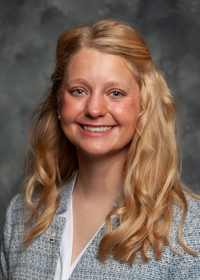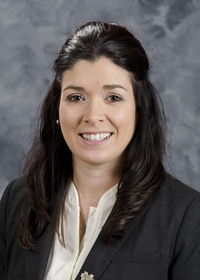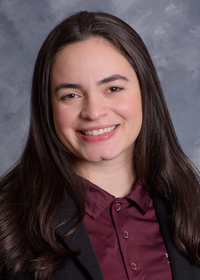Information Possibly Outdated
The information presented on this page was originally released on March 26, 2001. It may not be outdated, but please search our site for more current information. If you plan to quote or reference this information in a publication, please check with the Extension specialist or author before proceeding.
Gelbvieh and producer earn good reputations
FOXWORTH, Miss. -- Donald Pounds of Marion County depends on the Gelbvieh breed's reputation for heavy weaning weights and maternal characteristics, and his cattle depend on his reputation as a smart and honest producer.
Pounds has owned cattle since he was 12, but he officially entered the commercial (crossbred) cattle business with his uncle in 1969. He purchased his first Gelbvieh bull in 1987 and was so impressed with the results that he began purchasing registered (purebred) cows in 1990. He is slowly phasing out his commercial cattle in favor of a totally registered herd.
"Someone once asked me, 'What can you do with a commercial cow that you can't do with a registered cow?' Since there isn't anything, it just makes more sense for me to raise registered cattle," Pounds said.
Pounds is president of the Mississippi Gelbvieh Association and vice president of the Marion County Cattlemen's Association. He and his wife, Cheryl, have about 30 commercial cattle and 40 registered Gelbvieh.
"The Gelbvieh have impressed me with their maternal abilities. They are very fertile and have no problems calving at age 2. They produce plenty of milk and wean heavy calves," he said.
Pounds said most Gelbvieh are located in the western United States, but the number is growing across the Southeast.
"Gelbvieh increased 11 percent nationally last year, the largest percentage of any single breed," he said. "In Mississippi, our number of breeders has about doubled in the last decade."
The biggest challenge Pounds faces, like all Mississippi cattle producers, is the environment. Three of the driest summers and this year's cold, wet winter make for miserable conditions. Pounds has 95 acres for pasture and 65 of those are planted in ryegrass.
"This was the first winter I've had to buy hay ever," he said. "The ryegrass came up just in time."
To meet the challenges of making a profit raising cattle, Pounds said cattlemen need to find their niche in the market.
"Find out what works for you, whether it's commercial or pure breed or a specific breed you like," he said. "Figure out what your buyers want and provide it."
In addition to finding a market niche, Pounds places emphasis on improving his herd's health and on educating himself on the latest issues confronting cattle producers. Most recently, Pounds took part in a Beef Quality Assurance program and learned the effects of injection sites on meat quality.
"Whenever we have a beef seminar or field day in the area, I can count on Donald Pounds being there," said Lance Newman, Marion County agent with Mississippi State University's Extension Service. "He's quick to seek advice, and other cattle producers are quick to seek him out for advice. He's been in the cattle business a long time, so they trust him."
Newman said Pounds' Gelbviehs are well received by local buyers.
"They see how he runs his farm. If your local buyers support you, then you've got a good product," Newman said. "He's known for his honesty, his support of the Gelbvieh breed and the cattle industry as a whole."
Pounds also is an avid supporter of 4-H and FFA youth livestock programs.
"My primary reason for supporting youth programs is not necessarily to promote the cattle industry; it's because I've never known a youth who participated in a livestock program to turn out bad," Pounds said. "Working and showing livestock builds character and teaches a strong work ethic."
For more information, contact: Lance Newman, (601) 736-8251




